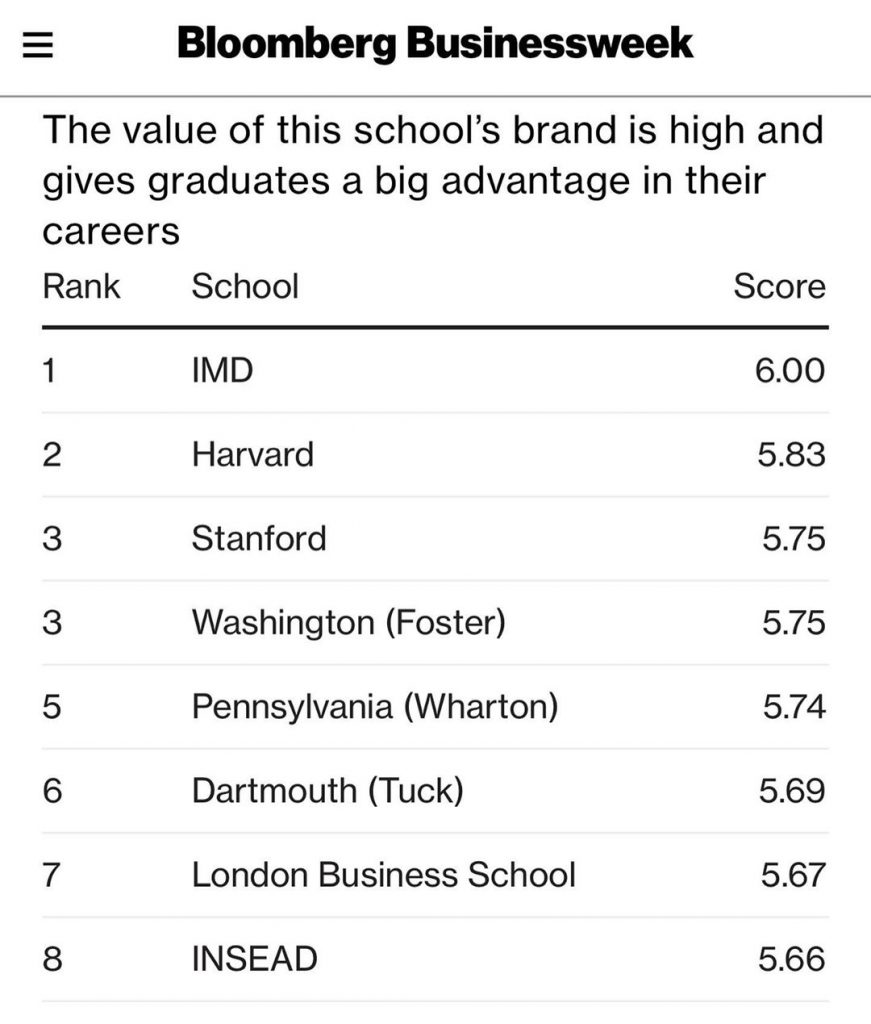During the MBA application process, you’re faced with numerous choices, each of which has a long-lasting impact on your future.
However, many applicants forget how much work goes into landing a full-time job offer while also completing their MBA studies.
That’s why we sat down with Camila Blosfeld, a UW Foster student who used her MBA to land a job at Amazon in the United States.

(Camila Blosfeld, University of Washington, Foster School of Business)
Ellin Lolis: Thanks so much for speaking with us, Camila! First things first, how did you end up choosing to attend Foster?
Camila Blosfeld: I moved to the USA 2 years before I started my MBA. When we decided to stay in the USA, I knew that pursuing my own MBA would be crucial to reposition myself in the market. So, I decided to research about other schools besides the top 5 that are well known to Brazilians. Foster stood out to me for being well known among the top companies in the country, because has one of the highest job placement rates and because of its focus on net impact.
I believe that deciding which school to apply to varies depending on each person’s goal. There are certain companies that focus on a group of schools, but it wasn’t my goal to apply for them, so Foster had all the features I looked for in an MBA.
EL: How did you balance classes and involvement in clubs during your MBA?
CB: I think that an MBA has 3 important pillars, first classes, second recruitment and third clubs and networking. The normal path is to get involved in many clubs, attend classes and find time to shine in your job applications. I particularly think that it is hard to give your best in all of them, right from day 1.
Classes and assignments are intense during the first two quarters, and this is even more true while updating resumes, applying for dozens of internships and being the head of a club. Clubs are important to network, and I do believe they are very important. However, in my specific case, I knew that I would continue to live in Seattle after my MBA, so I took the risk and focused on internship applications and classes and didn’t get involved in any clubs.
I think each person has different experiences and background, thus, each person should focus their time on the activities that will help to achieve their goal. My goal was to get an internship in a big company and get a full-time offer in the end of the MBA. I dedicated my free time to make this happen.
This year, I’m involved with one club, the C4C, and it has been easy to manage classes and my tasks in this club. I think that having achieved my goal in the first year made me relax and enjoy my free time, get together with my friends at school and work in the club. I wouldn’t have done a good job in any club last year.
As I said, each person should be aware of their capabilities and manage their time wisely. It is almost impossible to do everything that is offered to you during the MBA.
Today, knowing what I know and having experienced the MBA, I would join one club during the first year.
EL: What field did you work in before your MBA? Did you know from the start that you wanted to change industries?
CB: I worked with construction in Brazil as a civil engineer/project manager and later as general manager in retail in the same industry. Yes, I knew from the start I wanted to change industries, roles and geography.
Changing all three at once is challenging and that is the reason I focused my first year in getting an internship.
EL: What was the process to obtain your summer internship like? How did Foster’s career center help you?
CB: The career center helped me shape my resume and prepare for interviews. They also provide the Foster jobs website so we can apply through the school.

Photo courtesy of Bloomberg Businessweek
My main advice is to not rely only on the career center, but also send the resume to second years and other contacts that can help you. To prepare for interviews I highly recommend second years, since they recruit in the year before.
I applied to at least 30/40 positions, and received a lot of negative answers. Some companies replied after 5-6 months. Having some interviews that weren’t my first choice was also helpful, I had the chance to do some “training” before the one I wanted.
EL: How did your summer internship go and how important was it in landing the job you wanted after your MBA?
CB: My summer internship went very well. I learned a lot, and I was able to apply many concepts from my first year of class during the internship. My feeling was that I was in an interview that lasted three months. Not because of people putting pressure on me, but because I wanted that so much that made me feel like that.
But, at some point, I learned how to relax a little bit. I had a great experience and enjoyed working with my team and manager, but I also worked a lot and talked to as many people as possible to get feedback.
Getting the offer right after the end of the first year was the best outcome possible. At that point I could apply to other positions if I wanted or accept the offer and enjoy the second year.
EL: What attracted you to working in tech? Why Amazon specifically?
CB: I wouldn’t say that I decided to work in tech more than I was looking for companies that my background would make sense. It is well known that changing roles, geography and industry all at once is not easy, thus, I focused on companies in which I could find a role that fit my background.
Many tech companies, like Amazon, have a retail team, and that is how I fit in Tech. Amazon has its Retail Leadership Development Program and when I learned about it, I knew that’s what I wanted.
EL: What was the process like to get a job in the United States? Do you have any tips for current or prospective MBA students who would also like to work abroad after the MBA?
CB: The process is not easy for most students. As an international student, many companies will not even consider your resume, so, don’t rely only on on-campus recruiting. Get out of the box, do your own research and apply for as many companies as you can.

Photo courtesy of @uwfostermba on Instagram
I also think it is important to interview for positions that are not your top choices because you gain practice and learn from the first interviews.
EL: What was the best experience you had during your MBA? What surprised you the most about your MBA experience?
CB: Getting to know so many new people from places I would never imagined and being able to exchange experiences with them. Also, studying in Seattle allows us to have guest speakers from the biggest companies in the US, and this is something that actually surprised me during my MBA.
EL: Do you have any final advice for recently admitted or prospective MBA students?
CB: Define your priorities and goals before you start the MBA and focus on that. You will have FOMO (fear of missing out) and it is normal. Work hard to reach your goals, but remember to enjoy your free time doing what you like.
EL: Thank you so much for your time, Camila!
My team and I pride ourselves on being with you at every stage of the process as you apply to an elite program, giving you the confidence that you are taking the right steps toward your future with the information you need not only to get accepted into a top MBA, but to find a program you love for life. That’s why I truly enjoyed talking with Camila and bringing this information to you.
If you need help planning how to navigate the first weeks of your MBA, designing an application strategy, or even if you’re just starting the application process and aren’t sure exactly what to do next, my team and I can help! Schedule your free consultation with us today.
Real MBA Essays That Got People In
School-specific sample essays that got our clients accepted






